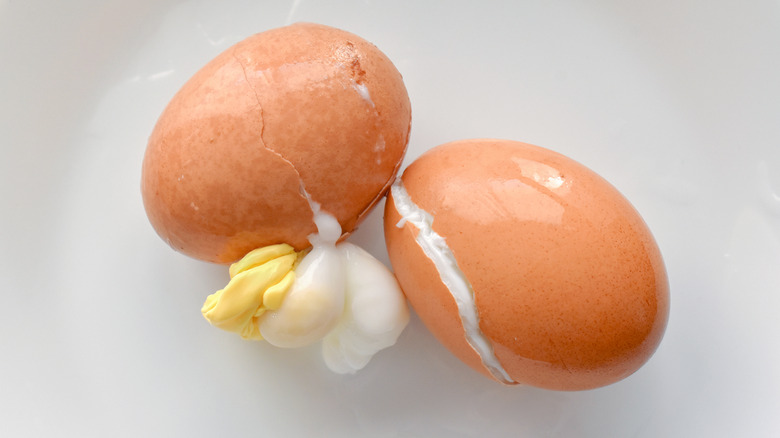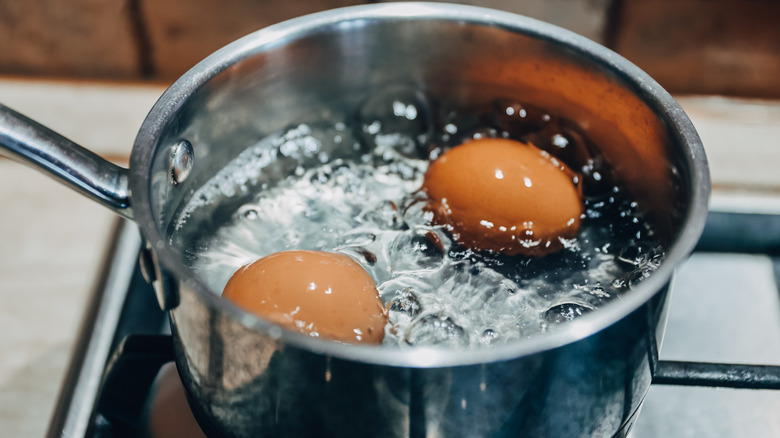It's Never A Good Idea To Make Soft-Boiled Eggs In The Microwave
A properly cooked soft-boiled egg is a simple yet decadent treat. With gently set whites and a creamy, runny yolk within, these eggs are a wonderful topper for noodle soups, rice bowls, salads, and many other dishes that need a little something creamy and savory on top.
Making soft-boiled eggs in the microwave is not only tricky to get right, but it can be dangerous as well. There are certainly plenty of hacks that simplify making this type of egg, but if these tricks suggest you use the microwave, take caution. Overall, whipping up perfectly yolky soft-boiled eggs doesn't take much time — typically, they only take five to seven or so minutes — but it does take a little know-how and a pot.
Though microwaves can perform a medley of kitchen tasks, including cooking some varieties of egg dishes, cooking soft-boiled eggs in them can lead to an eggy explosion, which can not only cause a mess but could possibly harm you. For safety reasons, avoid cooking soft-boiled eggs in the microwave, or you may end up with some very hot egg on your face.
Why do eggs explode in the microwave?
Why do soft-boiled eggs have a tendency to explode in the microwave, and why does cooking them in a pot make a difference? Here's what happens: As the egg cooks in the microwave, the steam inside the shell builds up quickly due to the fast-heating properties of the microwave. This heat can cause the shell to explode — either while it's still in the microwave or once you've taken it out and begun peeling it.
Cooking the egg in a pot heats the egg more slowly, preventing this steam buildup from happening as frequently. Steam in the egg can still crack it open in the pot sometimes, though, as you may have experienced from any boiled egg blowouts you've encountered. But you're far less likely to experience a dangerous situation — like an egg exploding as you take a bite out of it – if you use the stovetop over the microwave.
Preventing boiled egg explosions
Even when boiling your eggs on the stovetop, the risk of explosion still exists. Luckily, to reduce the possibility of that shell cracking unexpectedly, there are some easy precautions you can take. Using room-temperature eggs is one trick to keeping those eggs intact. Dropping cold eggs right out of the fridge into the pot will cause cracking as the fast transition from cold to hot expands the contents of the shell. Letting those eggs sit out on the counter for a bit to come up to temperature will make a difference.
Another tip: Put a little vinegar into the water before boiling. Vinegar's acetic acid is a coagulant that causes the proteins in egg whites to seize up; the firmer the egg whites, the less likely they are to escape through the shell and explode into your boiling water. Plus, vinegar also reduces the sulfuric smell of boiled eggs as well. With proper prep and the right cooking method, your soft-boiled eggs will stay deliciously safe and ready to eat.


